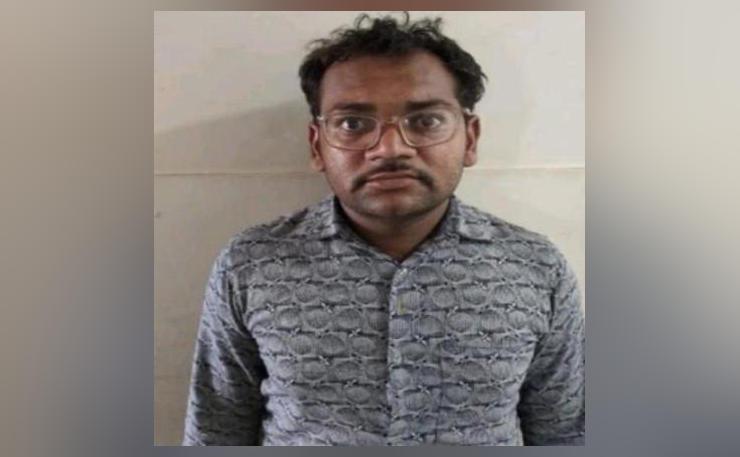
Health Worker Arrested for Spying, Sent New IAF & BSF Sites Visuals to Pak, Got ₹40,000
In a shocking incident, a health worker from Gujarat has been arrested for spying on behalf of Pakistan. Sahdev Singh Gohil, a resident of Ahmedabad, was caught red-handed while sharing sensitive information about newly-constructed or under-construction Indian Air Force (IAF) and Border Security Force (BSF) sites with a Pakistani agent.
According to the investigation, Gohil was paid a hefty sum of ₹40,000 in cash by an unidentified man for providing the crucial information. This raises serious concerns about the vulnerability of our national security and the ease with which foreign agents can infiltrate our systems.
The story begins with Gohil buying a SIM card on his Aadhaar card, which he then used to activate WhatsApp for the Pakistani agent’s use. This move was a deliberate attempt to disguise his tracks and avoid detection.
Gohil’s espionage activities were uncovered after the BSF’s 91 Battalion in Rajkot received an anonymous tip-off about a suspicious individual sharing sensitive information with a foreign agent. The BSF authorities immediately launched an investigation and conducted a sting operation to catch the culprit in the act.
During the operation, Gohil was seen sharing photographs and videos of IAF and BSF sites on WhatsApp with the Pakistani agent. The visuals were taken using a high-quality camera and were remarkably detailed, giving the Pakistani agent a clear understanding of the layout and security measures in place.
Gohil’s motives for spying are still unclear, but it is likely that he was lured by the promise of a substantial sum of money. The investigation has revealed that he was paid ₹40,000 in cash by the unidentified man, which is a significant amount for a health worker.
This incident highlights the need for stricter vigilance and security measures to prevent such espionage activities in the future. It also underscores the importance of educating citizens about the dangers of sharing sensitive information with foreign agents.
The Indian government has taken several measures to enhance national security in recent years, including the development of advanced surveillance systems and the deployment of additional troops along the border. However, incidents like this serve as a reminder that there is always room for improvement and that vigilance is key to preventing such breaches.
Gohil’s arrest has sent shockwaves across the nation, with many expressing concerns about the ease with which foreign agents can infiltrate our systems. The incident also raises questions about the effectiveness of our surveillance systems and the need for greater cooperation between intelligence agencies to prevent such espionage activities.
In conclusion, the arrest of Sahdev Singh Gohil for spying on behalf of Pakistan is a wake-up call for us all. It serves as a reminder of the importance of national security and the need for vigilance in preventing such breaches. We must remain vigilant and work together to ensure the safety and security of our nation.






